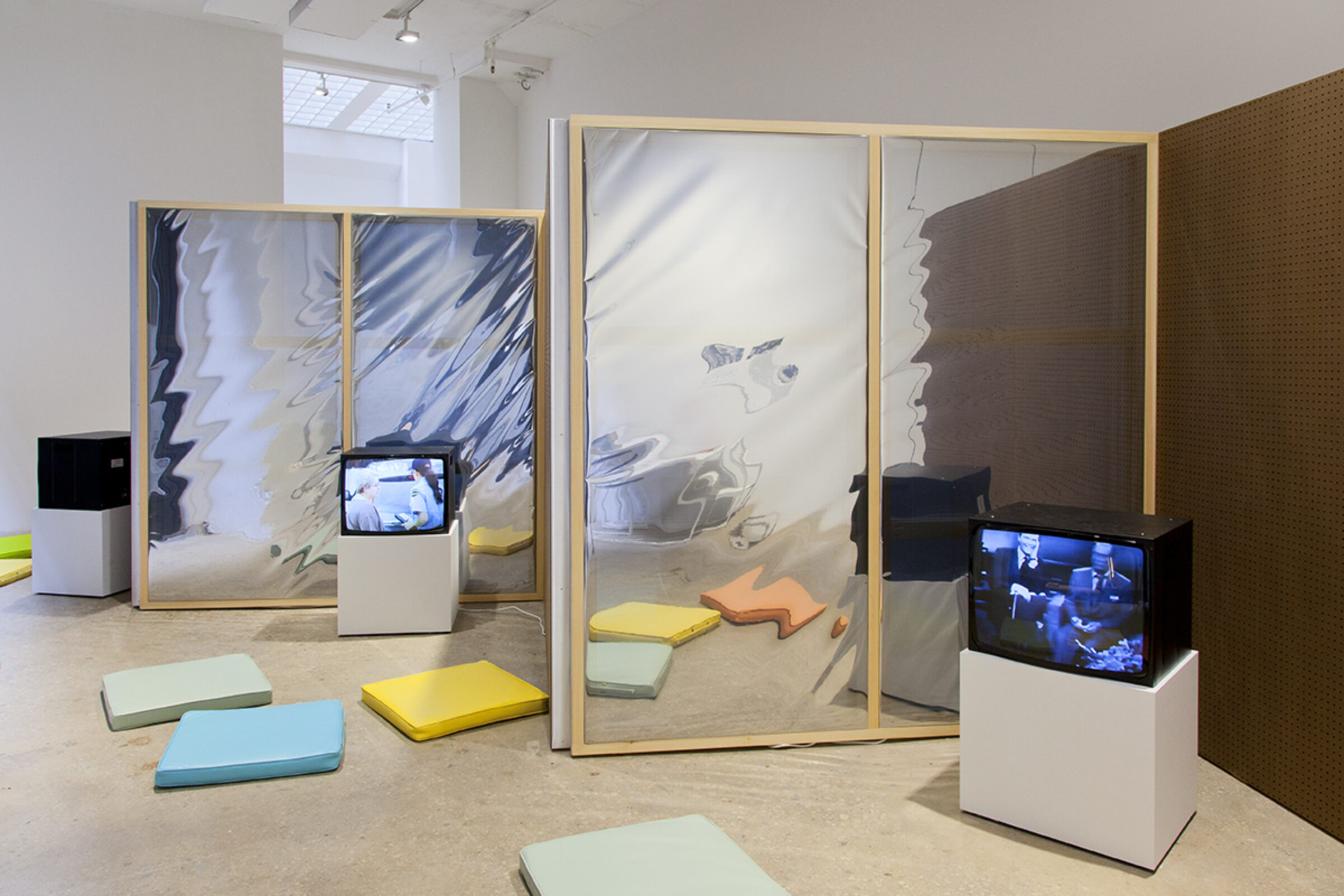Greene Naftali
Exhibition
Dan Graham
A New Look at TV and a Funhouse
Ground Floor
Press Release
Download PDF

Over the past fifty years, Dan Graham has continually reexamined the intersections of architecture and popular culture. Graham’s new installation, TV Producer as Conceptual Artist (2018), combines these interests, displaying excerpted footage from reality and game shows on box monitors, around an architectural screen of perforated Masonite and stretched Mylar. Visitors are invited to lounge on vinyl cushions spread across the floor for easy viewing, evoking a Middle American suburban den. Hand painted in a neo-‘60s mode on the exterior window is the work’s title, a collaboration with designer Michael Metz.
The selected clips combine pathos and humor, demonstrating TV’s ability to generate amusement from the small and large humiliations of its subjects. An American Family, which was the topic of a 1983 essay by the artist, purports to document the daily lives of an ordinary Santa Barbara family, the Louds—but, paradoxically, their appearance on TV propelled them into sudden celebrity, at least for a Warholian fifteen minutes. In Queen for a Day, overburdened housewives compete for the sympathy of a live audience, gauged by an applause meter. The Newlywed Game reveals how little recently married couples actually know each other, sometimes provoking genuine marital discord. This Is Your Life forces celebrities to confront their pasts, and Candid Camera stages pranks and records the bewildered responses.
The large format print hanging in the front gallery refers to Graham’s historical manipulations of television as medium, collecting images and text related to his 1976 conceptual work Production / reception (piece for two cable TV channels). In that work, the inside of a TV studio is filmed and then broadcast on TV. On another channel, a family is shown sitting around the TV set, watching. The artist thus inverts the standard flow of televised distribution, turning the production process itself, as well as the experience of spectatorship, into possible “channels” to be viewed.
In the central gallery, Dancing Circles (2018), a site-specific installation of interlocking glass and steel, is set in conversation with the structural columns that divide the room. The installation continues Graham’s use of reflective material to produce funhouse-like optical effects that are disorienting in their visual distortions. Graham’s ongoing series of sculptural installations, often called “pavilions,” adopt the conventions of corporate architecture, employing the two-way mirror glass used in office buildings to allow light in while keeping prying eyes out.
On view in the back gallery are two sculptures. One, a pyramidal model using a combination of two-way mirror glass and perforated steel, if built full-scale and entered would create an almost psychedelic experience. The second model, for a pavilion whose entrance riffs on the “moon gates” found in Chinese gardens, has been realized at full-scale in Vienna and Milwaukee. A divider made from laminated glass separates the two works—objects present on the reverse side of the glass are almost, but not quite, visible.


